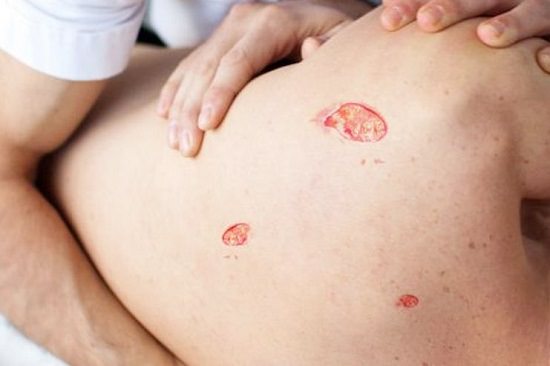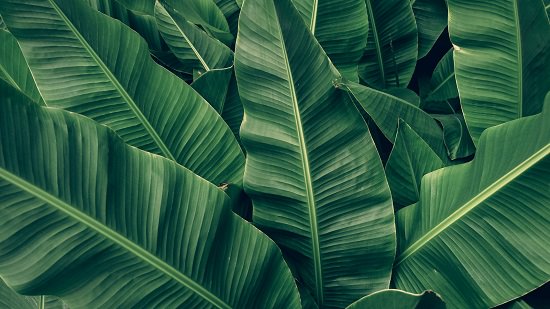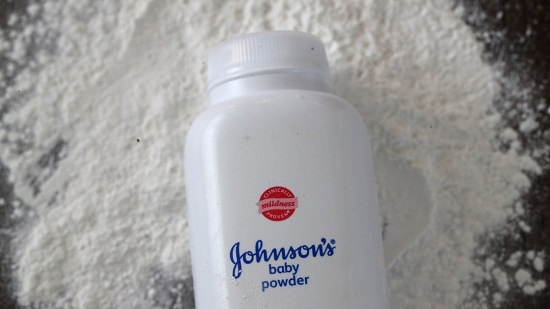Bedsores commonly affect those who have mobility issues and are hard to treat. Read how you can use the banana leaf for bed sores below!
What Are Bedsores And Their Causes
Bedsores, also called pressure sores, form as a result of prolonged pressure on the skin, causing damage to the skin and underlying tissue. The prolonged pressure cuts off blood supply to the skin.
Dampness caused by sweating and incontinence can compromise the skin further. They occur mostly in bedridden or immobilized people due to an incapacitating illness and are therefore unable to change their positions. They can develop within a week or two and are common in hospitalized patients and those under home nursing care.
Elderly people, people with diabetes, smokers, and undernourished people are more at risk for developing bedsores. They commonly occur on heels, ankles, hips, back of arms and legs, back of the head, buttocks, shoulder blades, spine, and the tailbone. Bedsores are self-diagnosable, treatable in the early stages, and can mostly be resolved within months.
Bedsores are extremely painful as they are open wounds. They appear first as a reddened area on the skin, and then the skin breaks down to form a raw, open, oozing wound. They can also emit a foul odor because of bacterial infection and necrosis of tissues. Medical dressings called hydrocolloids placed on bedsores can also cause an odor due to the reaction of chemicals in them with wound exudate.
Complications of Bedsores
Untreated bedsores may lead to fatal complications, especially if the patient is elderly or is immune-compromised. The open wound provides an entry point to bacteria and infection. Cellulitis, gangrene, bone, and joint infections, and cancer can also be serious consequences of untreated bedsores. The infection can also lead to sepsis and septic shock, followed by organ failure and death.
Banana Leaf for Bed Sores
A scientific study has shown that the application of banana leaves can prevent the formation of bedsores. It is also effective in healing stage 1 bedsores. However, the banana leaf has to be sterilized to remove pathogens before using it on bedsore. The banana leaf has a surface that is non-adherent, waxy, and cool. This soothes bedsore, and it is also easy and less painful to remove it from the wound and place a new one. It also aids rapid epithelisation of the open sore. Besides, it constitutes a safe, natural, and inexpensive dressing for wounds.
Other Remedies For Bed Sores
1. Aloe Vera Gel
When you apply aloe vera gel topically on areas of the skin which are vulnerable to bedsores, it can prevent their formation. Aloe vera gel also heals bed sores as it has anti-bacterial and anti-inflammatory properties.
2. Turmeric and Myrrh Essential Oil
A mixture of turmeric and myrrh essential oil applied topically helps improve blood circulation and boost wound healing. Turmeric paste applied on its own has anti-microbial properties and also relieves pain, and aids wound contraction.
3. Kitchen Ingredients
A mixture of beetroot and honey relieves itching and soothes the skin.
Massaging the entire body with warmed coconut oil or olive oil can promote blood circulation and prevent the formation of bedsores.
A mixture of powdered sugar and honey applied over the sore soothes and heals the sore.
4. Saline Water
Saline water acts as a disinfectant and prevents infection. Dampen a soft cloth in saline water and compress the bedsores with light pressure.
5. Baby Powder
Baby powder sprinkled on the skin, especially in skin folds, will help absorb moisture and keep the skin dry. Damp skin can act as a contributing factor to the development of bedsores.
When To See A Doctor
A sore that does not heal within a few days or bedsore accompanied by fever, swelling, and pus formation warrants immediate medical intervention. The doctor will physically exam the sore and assign a stage to the wound.
This staging between 1 and 4, with four being the most severe, will determine the treatment method. Treatment involves cleaning and dressing the sore and relieving pressure on it by frequently changing positions. Using special beds and cushions to relieve the pressure is also a treatment measure. Medication helps relieve the pain and antibiotics help fight infection.
Good nutrition with supplements of vitamin C and zinc is essential to boost the healing process. In some cases, the necrotic tissue will have to be removed to promote healing. Large bedsores that do not heal might require surgery.




